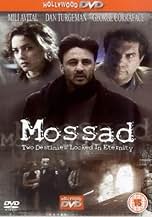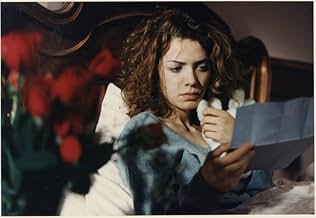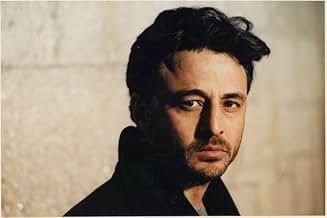I discovered Minotaur by accident when it started playing on HBO channels in October 2001. Seemingly unheralded except for an incorrect two-sentence prologue from HBO, I feel it deserves far more attention than that.
The central character is Alex, an Israeli Mossad assassin operating in New York City. Like the Picasso print on his childhood bedroom wall, Alex has become a Minotaur; part beast, part man, for he is also a soulful romantic. Both are legacies from his mother.
Happiness had been out of reach for Alex until he sees Thea. She is a student of classical music and Spanish literature, and a purer version of his mother.
Fearing endangering Thea, Alex watches from a distance but cannot resist moving closer and closer. He leaves incredible love letters and gifts for her in places no stranger could. He includes a book of Picasso prints with "his" Minotaur drawing and a Luis de Gongora poem about two hearts in one body. Thea is deeply moved and cannot understand why he stays apart.
As he realizes much later, he was a coward not to have left his old ways behind when he first saw her --and the more time that passes, the more dangerous the conflicted situation becomes.
The ending, like the events leading to it, echo the Gongora poem and Minotaur drawing, whose symbolism had always held-out more than one possible meaning for their relationship.
The use of art, literature, music, and history to impart deeper meanings to situations is very well done. So is the interplay of shadow and light, down to Alex's stubbled or clean-shaven face, reflecting how far in or out of his dark world he is.
Rather than following a linear time-line, the film unravels Alex's emotions. The story moves between 1963 and the mid-1990s, from a beautiful rural home in Israel (that seems to have once been a Palestinian home) to the buildings, streets, and skylines of NYC.
Mostly in English, Minotaur is an Israeli production based on the book by Israeli author Benjamin Tammaz. The core references to the perils of the deepening chasm between utter brutality and hope speak to the conflicts there and elsewhere more than ever.
The film's star, co-writer and co-producer is Dan Turgeman who used to sometimes use his Sephardic looks for roles in English-language films that negatively stereotyped Muslims. He may have perhaps needed the work as a younger actor, but this is a welcome change.





























